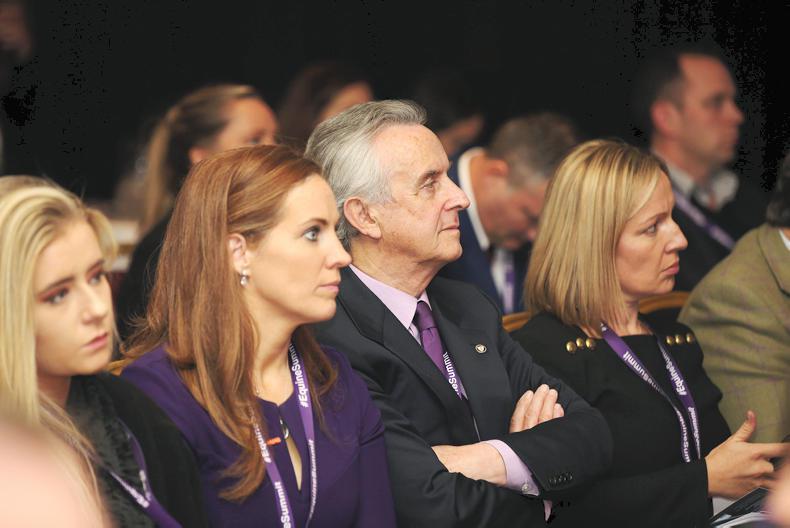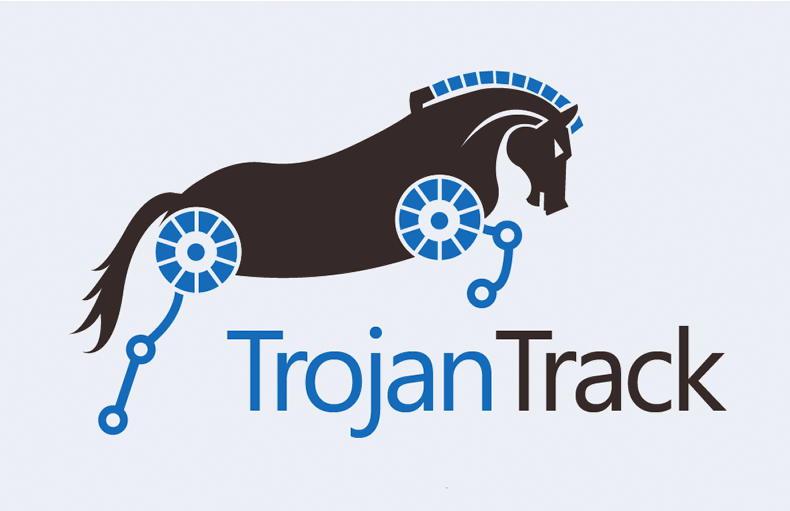A FULL house of 400 people attended the Gain Equine Nutrition and Alltech Equine Summit in the Keadeen Hotel, Newbridge, Co Kildare, on Thursday.
The unique event was pitched at those who work in either the thoroughbred or sport horse sector and featured a high-quality line-up of speakers and panelists.
After the welcome address from Glanbia chairman Henry Corbally, Alltech’s chief innovation officer and vice president Aidan Connolly gave an eye-opening presentation on the threats facing the horse industry globally.
Connolly addressed the ‘triple threat’ facing the racing industry – namely over-reliance on traditional betting, scarcity of employees, and the sport’s outside perception. But it was his remarks on how technology is likely to transform most aspects of the horse industry which had the audience spellbound.
He discussed how disruptive technologies such as virtual reality, robots and artificial intelligence are already having a major impact on the equine world. Noting how computers have shown themselves to be better than humans at highly skilled tasks in other fields, such as medicine, he warned horsemen not to be complacent.
“The onset of new technology is going to be tremendously important, not in 30 years, but in the next three years. The impact it can have on costs and animal welfare mean it cannot be ignored. You have to create a culture within your company that ‘we are going to be the first in trying things’. Speed of innovation and implementation will determine the winners from the losers.”
Sasha Kerins of Grant Thornton, aided by a video interview with economist Jim Power, presented a set of industry statistics which set the scene for the first major discussion of the day.
In what may well have been a first, four leading administrators from the racing and sport horse sectors shared the stage and answered questions posed by MC Leo Powell of The Irish Field on the many challenges faced by both sports.
Turf Club senior steward Meta Osborne expressed concern that, despite this week’s heroics in Melbourne, this is a pivotal time for Ireland’s international reputation. “It can be made in a generation but it can be lost in a generation too.” Having ‘fallen into’ her administrative role, she feels that the sport’s future leaders should receive more mentoring.
The topic of Brexit was never far away and Horse Racing Ireland CEO Brian Kavanagh admitted that – while remaining hopeful of a smooth transition – his organisation is now preparing for the ‘doomsday’ scenario of a hard border with no clear trade deal.
The lack of a career path in racing was also discussed, along with the ongoing struggle to attract racegoers who are looking for that ‘rock concert’ excitement.
Kavanagh confirmed that HRI would continue to beat the betting tax drum when seeking Government funds while, on the breeding side, the panelists acknowledged that Ireland was no longer the automatic choice for the location of top-end stallions.
The arrival of the Minister for Agriculture brought an intriguing discussion to a close but, even as the delegates broke for dinner, it was Aidan Connolly’s technology talk which still had everyone asking ‘Could a robot do at least part of my job better than me?’


 This is a subscriber-only article
This is a subscriber-only article
 It looks like you're browsing in private mode
It looks like you're browsing in private mode










SHARING OPTIONS: